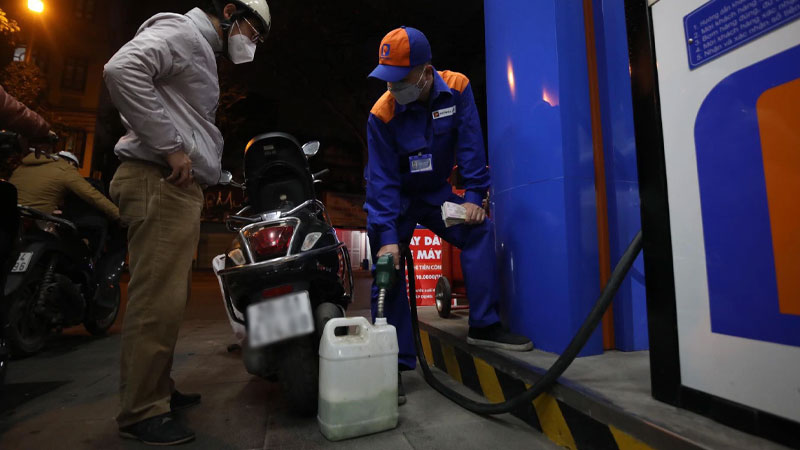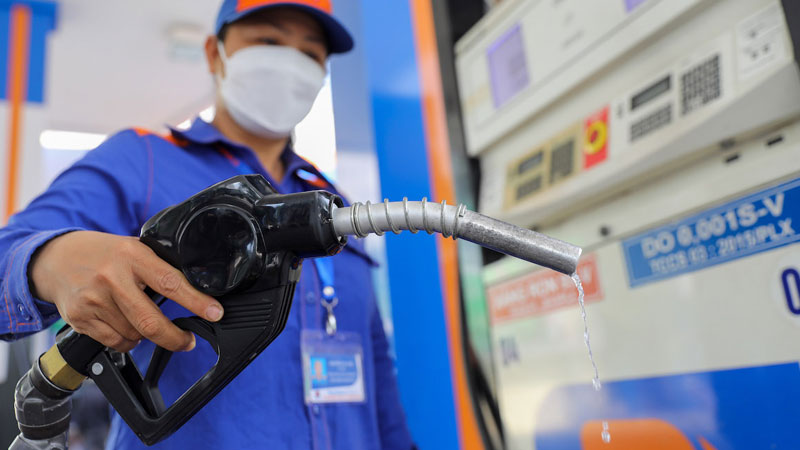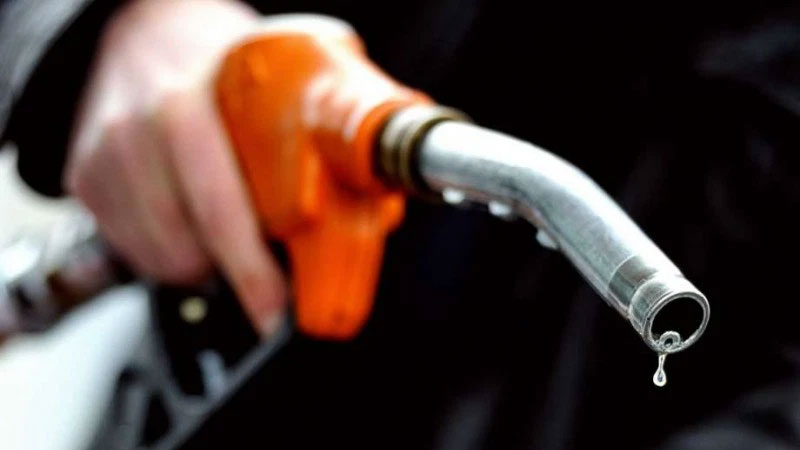The recent surge in fuel prices has led many people to consider storing gasoline and diesel at home to meet their daily and production needs, fearing that prices for these commodities will continue to rise in the future.
However, in reality, this practice does not save a significant amount of money, but it does pose several dangers to health and life that not everyone is aware of. Join us to learn more about these dangers in this article!
1 The Dangers of Storing Gasoline and Diesel at Home
Increased Risk of Fire and Explosions
Gasoline is a highly flammable liquid that burns quickly due to its high volatility, low ignition temperature, and ability to produce toxic smoke during combustion, as well as its fast spread to other areas.
In fact, there have been numerous incidents of fires and explosions caused by gasoline and diesel, resulting in tragic consequences. On February 8, 2020, a fierce fire broke out at the home of Mr. N.V.V in Phu Cat district, Binh Dinh province. A small fire caused by an electrical fault ignited a 12-liter gasoline container, leading to severe burns and fatalities among Mr. N.V.V’s family members due to smoke inhalation.
 Gasoline is a highly flammable liquid that can easily ignite and quickly spread.
Gasoline is a highly flammable liquid that can easily ignite and quickly spread.
When gasoline prices rise, people not only fill up their vehicle tanks but also request to fill cans, bottles, and containers in a careless manner. However, these containers do not meet the fire and explosion prevention standards, and they are prone to leaks when stored indoors, especially when kept near kitchens or electrical appliances, making them even more challenging to control.
 These types of cans, bottles, and containers do not meet fire and explosion prevention standards.
These types of cans, bottles, and containers do not meet fire and explosion prevention standards.
According to Lieutenant Colonel Do Anh Quyen, Deputy Chief of Police in Bac Tu Liem district, Hanoi: “Gasoline and diesel are highly flammable and explosive substances. Storing them in cans of a few liters or more in the confined space of a home is extremely dangerous and poses a high risk of fire and explosion. Gasoline can evaporate or leak if the container is not secure, and in such cases, a simple spark or an open flame can instantly cause a fire or explosion with devastating consequences.”
Health Hazards
Gasoline and diesel are derived from petroleum and are mixed with various chemicals and additives to make them suitable for use in machinery and engines.
As a result, when you fill your vehicle with gasoline, you will notice a strong and unpleasant odor from the volatile chemicals that not only pollute the environment but also pose health risks.
 Gasoline emissions contribute to environmental pollution and pose health risks.
Gasoline emissions contribute to environmental pollution and pose health risks.
Gasoline contains harmful organic compounds such as benzene, toluene, and xylene, among others. Prolonged exposure to gasoline fumes can lead to respiratory issues such as shortness of breath, reduced lung function, a constantly runny nose, headaches, dizziness, nausea, infertility, anemia, and even cancer.
 Prolonged exposure to gasoline fumes can lead to respiratory problems and other health issues.
Prolonged exposure to gasoline fumes can lead to respiratory problems and other health issues.
Additionally, when gasoline burns, it releases significant amounts of CO2, a harmful greenhouse gas that contributes to global warming and causes health issues such as reduced red blood cell count, shortness of breath, fatigue, and dizziness.
2 Safe Storage Practices for Gasoline and Diesel
According to the 2001 Fire Prevention and Fighting Law, amended and supplemented in 2013, the illegal production, storage, transportation, use, and trading of flammable and explosive materials are strictly prohibited. Violators may face administrative fines or criminal prosecution. The illegal storage of flammable and explosive materials can result in a fine of up to 25 million VND.
 Safe storage practices for gasoline and diesel are crucial to prevent accidents.
Safe storage practices for gasoline and diesel are crucial to prevent accidents.
Therefore, following the recommendations of experts, police, and fire prevention agencies, it is advisable not to store gasoline and diesel at home. If you have already purchased gasoline or diesel for storage, ensure the following requirements are met:
- Store gasoline and diesel containers in a separate area away from living spaces, in a well-ventilated area to reduce the risk of fire and explosion caused by vapor buildup.
- Avoid placing gasoline and diesel in direct sunlight or high-temperature areas, and keep them away from sources of ignition or heat, such as stoves, trash burning, or electrical appliances that generate heat.
- Warn and prevent children from accessing or playing near the storage area to ensure their safety.
- Store only small quantities in tightly sealed containers made of fire-resistant materials.
As we have discussed, the potential savings from storing gasoline and diesel at home are minimal compared to the high risks associated with it. These risks can lead to devastating consequences for both life and property. Therefore, it is strongly recommended not to store gasoline and diesel at home to prevent any unfortunate incidents.
Can You Install a Washing Machine in the Bathroom?
A hotly contested issue, the possibility of installing a washing machine in the bathroom has sparked much discussion about the potential risks and benefits. From concerns regarding water damage to the impact it could have on the longevity of the device, this is a debate with a multitude of angles to consider.
Advice on How to Save a Person Choking on Smoke in a Fire
It is critical to understand the techniques of rescuing someone from smoke in the case of a fire, as it can save a person from serious harm or even death. Let’s take a look at its importance and what to do!





































